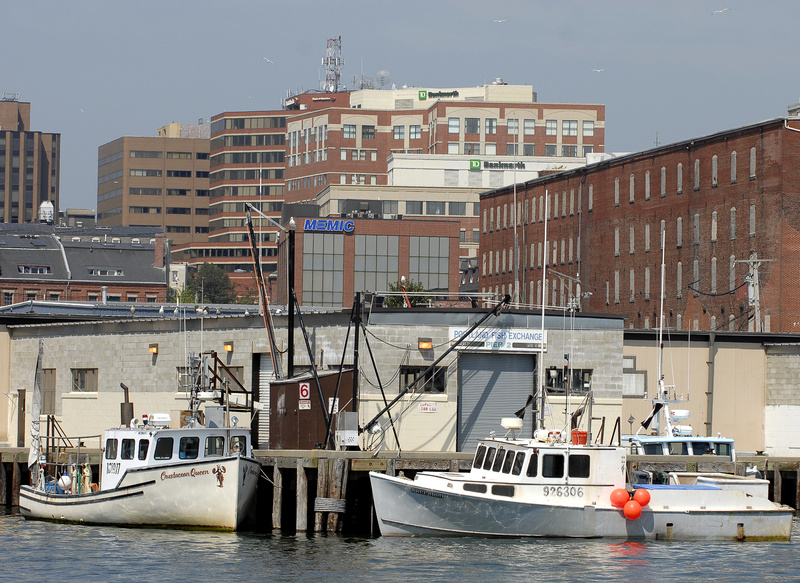PORTLAND – Climate change is only one of several threats to New England fisheries, and it might not even be the most serious, scientists and policy makers said at a symposium Thursday in Portland.
More information, monitoring and study are needed to determine fully what is causing problems in the oceans, and how, they said.
The discussion came in the second day of a two-day symposium held by the Rockland-based Island Institute at the Portland Company complex on Fore Street.
Historical overfishing of certain stocks, changes in entire ecosystems, coastal development and methods of fisheries management also have contributed to species’ declines and injury to the fisheries, experts said. They focused on how fishermen and managers can respond in the future to the complexity and uncertainty of climate change, altered ecosystems, declining stocks, closed fishing areas and other pressures on the industry.
All of those pressures will have to be addressed to sustain New England fisheries, they said. To focus solely on climate change and its consequences would be to miss the opportunity to assess what is ailing the oceans and make lasting and effective changes.
More than 50 ocean scientists, policy makers and representatives of fishermen’s advocacy organizations exchanged ideas on the causes and potential corrections for a half-century of sweeping changes in New England fisheries.
Climate change and its effects are not the main causes of the vast declines in cod or the huge increase in dogfish in the last few decades, said Tom Dempsey of the Cape Cod Commercial Fishermen’s Alliance, an advocacy organization. “It wasn’t even the prime driver,” he said.
Fishing practices, unrealistic catch limits and a failure to respond adequately to changing conditions were occurring before fishermen began experiencing the effects of climate change, including rising seawater temperatures, increased acidity and changes in where and when species were congregating or moving, said Dempsey. “The ocean was always a system in flux,” he said. “We have to change.”
Calling for “a national voice for fishermen about climate change,” Dempsey also advocated better regional fisheries management and more control by fishermen in setting goals and methods to accomplish broader-based management.
One key effort will have to be shaping strategies for rebuilding vulnerable species, said Jake Kritzer of the Environmental Defense Fund. But exactly what the goals should be and how they can be implemented are unclear and under vigorous debate.
More information and research are needed about climate change, and about stocks in various fisheries and locations, conditions on and in the water, effective quotas, and establishing or maintaining closed areas to revive decimated stock, scientists and fisheries managers said.
Prohibiting fishing in certain areas, for example, has yielded some encouraging results, said Graham Sherwood, research scientist of the Gulf of Maine Research Institute. It undeniably has helped haddock, but closed areas aren’t the only tools needed to achieve positive outcomes or sustain them, he said.
Enlarging the management perspective from a focus on species to concentrating on ecosystems is essential in managing the complex stresses on fisheries, scientists said.
But much more information will be needed to know what to do to foster resiliency in populations, said Lee Crockett, director of U.S. oceans for the Pew Charitable Trusts.
Responding to the effects of climate change on the world’s oceans and restoring the health of the fisheries is not simply a localized challenge, Dempsey said.
North Cairn can be contacted at 791-6325 or at:
ncairn@pressherald.com
Copy the Story Link
Send questions/comments to the editors.



Success. Please wait for the page to reload. If the page does not reload within 5 seconds, please refresh the page.
Enter your email and password to access comments.
Hi, to comment on stories you must . This profile is in addition to your subscription and website login.
Already have a commenting profile? .
Invalid username/password.
Please check your email to confirm and complete your registration.
Only subscribers are eligible to post comments. Please subscribe or login first for digital access. Here’s why.
Use the form below to reset your password. When you've submitted your account email, we will send an email with a reset code.